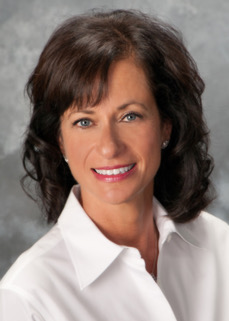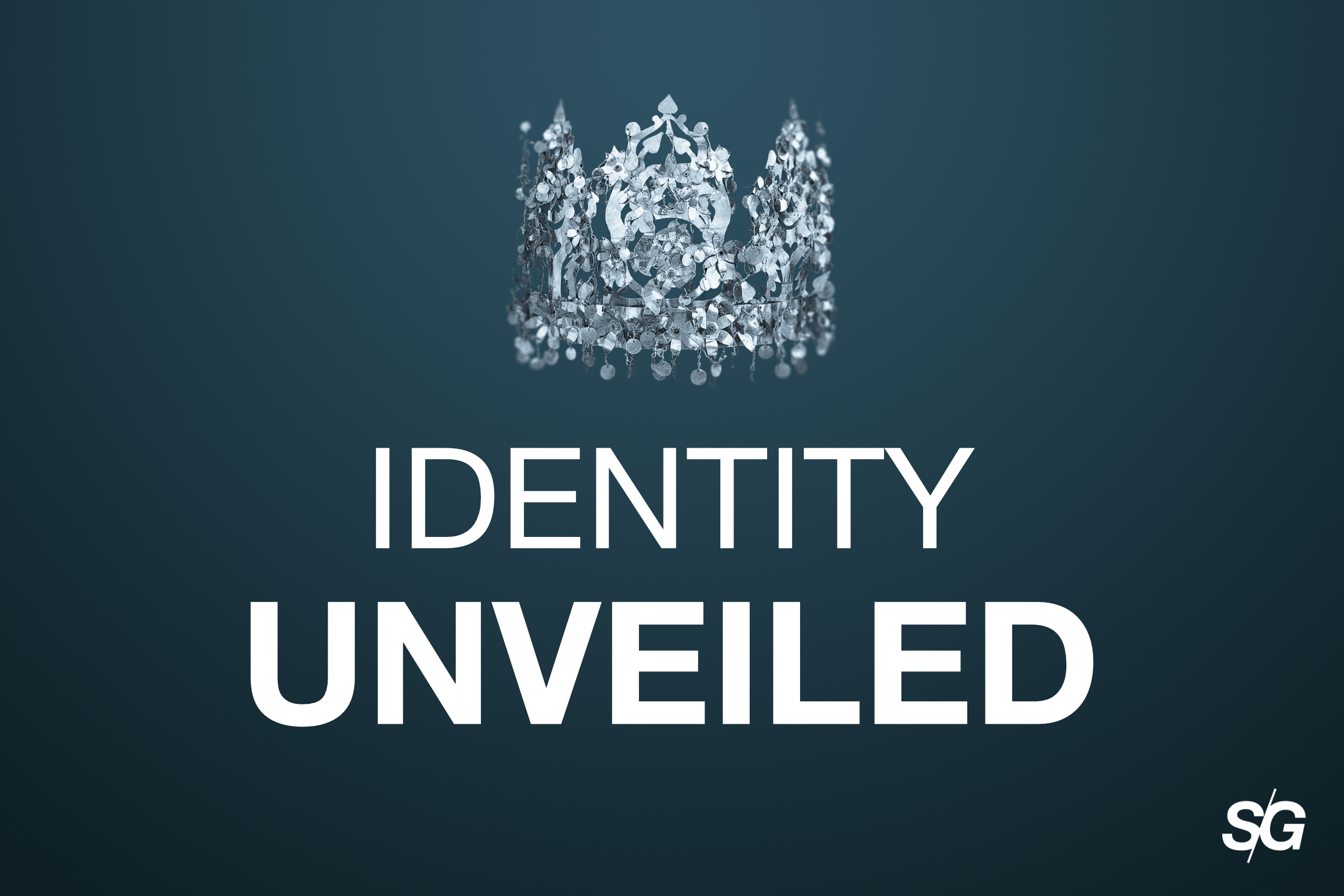Also Available On






Podcast Transcript
Whether you have a mother, are a mother, are a grandmother, or have no children by birth, you are a woman of influence. Or perhaps you have lost a mother or have an absent mother. My prayer is that this podcast offers hope.
One side note as I begin: In this week of Roe v. Wade, I am beyond thankful my birth mother didn’t have the choice since was in a culture that forbid abortion. Some may look at this as a negative, but I choose to be grateful that, regardless of the reason, I was given life.
Backstory about my two mothers…
As a side note, you may know I’m adopted. The one missing puzzle piece of my backstory is that I have no idea who my birth mother is. I know she is Persian because of my DNA results, but that is all I know. The truth be known, she could find me in a matter of seconds. At this point in my life, even though I long for that, I am content in realizing I may never know. The mother who said “yes” to taking me, is the one God ordained in his sovereignty to be placed in my family of origin.
Confession time: I used to dread Mother’s Day when my mother was alive. I would go look for the obligatory card, and nothing seemed to fit. Reading the sentiment evoked all kinds of emotion for me. And then I felt guilty for feeling that way.
So I’ve been on a journey with my relationship with my mother. If you haven’t read about it, I’d love for you to pick up a copy of my book, Identity Unveiled. It shares the highlights of her upbringing as well as mine.
As many of you may know, when my parents retired from active service from the army, I went to live with my grandmother. She looked at mothering as a second chance to do everything she had not done in raising my mother.
It was a knee jerk reaction to a failed first attempt. Not to mention the generational gap.
Mothers and life chapters…
After my husband and I had been married a while, my thoughts were about becoming a mom were this: I honestly ‘thought’ I would be fine if I never became a mother. Perhaps because of my own experience. I’m so thankful that God knew me better than I knew myself! He has blessed with me with two amazing – now adult – children.
When I became a mom, I was terrified. Why? The two women in my life who had a part in my upbringing had not healed from their personal life narratives, which, in turn, completely affected their mother-daughter relationship. This, in return, affected their parenting of me. Consequently, I had no traction or role modeling for what a healthy mother-grandmother-daughter relationship looked like. Our love for each other was real and valid, but the three of us never could arrive at a healthy emotional place with each other. I look forward to the day when we are reunited in our heavenly home to share eternity together. We will make up for lost time.
My husband and I were starting afresh. He was fortunate to have had a good motherly influence, and I know he misses her as he faces his first Mother’s Day without her here.
When we were new parents, we were guided by a nationally known pediatrician and his daily column who, now as I look back, don’t philosophically believe with all of his parenting points. In addition, we were guided by the verse in Proverbs 22:6 – “Train a child in the way he should go: and when he is old, he will not depart from it.”
And what does that mean? Many times, we in Christian spheres of influence believe this to be a promise. It’s not. It’s a proverb. It does speak to our responsibility to guide our children in the way he should go if you are basing your parenting on a Judaeo-Christian framework. But there is more to training up a child than just the spiritual component. Here we go…
In the Present
- Attach to them emotionally. Seek to understand. Give ample opportunity to listen to them.
One regret I have is that academics and sports took priority over family time. Even though my rule was that we ate around the table almost nightly, it was more about the events of the day than the emotional intimacy that can be created during that time. God doesn’t want us mothers to live in regret, so start with today.
Life coaching question: What are you doing to emotionally connect with your child?
Even if you have adult children, this still applies. My adult children know they have an open door with me. And I’m happy to say that I believe I have that with them.
B. Beliefs of what a mother does. I truly want you to honestly assess what you believe to be the way you parent. Remember: all actions or inactions are a byproduct of any conscious or even unconscious beliefs you have about your role.
Life coaching question: What are your beliefs about what a mother or grandmother does or looks like? Are you on autopilot from what was role modeled for you? This may or may not be positive thing, but I simply encourage you to examine what you’re doing. And is it working? Is what you’re doing creating an emotional intimacy with your children or grandchildren (see point #1).
If your adult children have distanced themselves from you, are you taking the time to ask what you can do? Take the higher road as the parent. If you need guidance, go get it from a LMFT.
In so doing, does your list match your beliefs and values or is there a disconnect with what you value and what is actually playing out in daily life?
C. Change – If your children are still at home, what needs to change to optimize your family life? What do you prioritize? Your schedule actually tells what you value most. Even for those of us who have adult children, I know too many mothers who refuse to change what they are doing which affects their parenting. What does your adult child need from you?
Life coaching question: What do you need to change?
Some of the best conversations I have had with my adult children is why my husband and I did what we did in the parenting realm. Give them understanding. Even if you could turn back the clock of time – which you can’t – tell them what you would do differently. Help them understand. They will be forever grateful. It also builds the bond of emotional intimacy (attachment).
D. Differentiation
Differentiation is the ability to see yourself – as a mother or grandmother – as separate from your children or grandchildren. They are given to you to steward and train, but not to helicopter. Not to live vicariously. It’s knowing who you are and who they are. There needs to be a separation. And, in so doing, staying emotionally connected to them.
Here’s something to ponder: Moms and grandmothers, do you know who YOU are? When you don’t, you naturally and by default live your life through the next generation or the one after that.
I know way too many mothers who helicopter and the line is barely existent between who they are and who their children are. That’s too much pressure for the kids. Where I have consistently seen this is in the academic arena where parents have told their children what courses to take and what field to study while in college. I recently told my first professor at WFU a couple of weeks ago that the good news was that my parents had too many personal issues to get involved with my academics. Also, the bad news was that they had too many personal issues to get involved with my academics.
Moms and grandmothers, please do not live through your children. I know my mother and grandmother did. You aren’t here to do that. There is a distinction between guiding them and living through them. That actually says more about you than them.
Life coaching question: What would it be like to realize that the person of you is separate and different from the person of them? Realizing that, what changes would you like to make to not only walk in your identity but allow your children or grandchildren to walk in theirs?
E. Examine your motives
Ladies, when you realize that your worth and identity is bestowed by God rather than your child’s report card, dean’s list status, or their career, it’s a realization that your children are more than a number. When you see them as belonging to God, you will free them up to be the sons and daughters that He wants them to be. That’s all that matters. You are on your identity journey, your children or grandchildren are on theirs.
What do you do if your children are grown?
- Pray for them. Daily. Each week, I send out a group text…. Let them know! Allow them to get specific with their daily and weekly needs. Keep a journal. Write down their requests. See how God answers.
- Celebrate when they are home. I bring out the fine china and silverware. These times are more special to me than even the holidays. Anytime is a blessing.
- How can you encourage them, regardless of their age? www.theblessing.com ( 3 paragraphs )
- Be the initiator to create that emotional attachment. Think of practical ways to do that – a card, a call, a text, a handwritten letter.
- If they and you are living from different belief systems, focus on the relationship itself. Find common denominators. Still encourage. Still affirm. If they are in a season of outright rebellion, you may need to let them go. Obtain professional guidance if you need to intervene or not, based on the family dynamics.
Past
What if your children have passed away? It’s amazing to me that I personally know moms who I can count on one hand who have lost adult children in the last few months. You will need to process your grief and please seek help in doing so. Process all the good, process what you have lost.
With my mother and grandmother being gone so long, I remember them in a healthy balance. I have so much more understanding now than when they were alive. I wish I had known so much about their lives. They never shared even basic facts. That’s how I know they were walking in the wrong identity because they never could or would share their life story. That is a red flag: if someone in your family doesn’t share, something happened that they haven’t been able to move forward from. I’m thankful that God allowed me to see a much bigger picture of their lives after they passed away. It truly helped me come full circle with their influence on my life.
May God comfort you in ways that only he can. Remember the positive things about your son or daughter who is no longer here. Think of unique ways to keep their memory alive. This will help you in moving forward. Find the gratitude in small and simple things. Establish a new tradition that you can implement on special days or anniversaries.
Influence
If you are a woman who has not given birth, please do not minimize your circle of influence! Because you don’t have the extra responsibilities of motherhood if your children are still home, you have more opportunity to impact others.
Here are some ideas:
- Create a bible study class for ladies or your age or a generation younger.
- Look for opportunities on a college campus.
- Mentor and Mentee with a selected few.
For the people who are in your life…
Initiate. Intention. Invest.
Time is neutral. Don’t let the days and months pass by without living with purpose for the people you care about.
For the people who are no longer here…
Reflect. Remember. Refresh.
What can you do today to influence your children, your adult children, your circle of influence? God gives you choice. He gives you this chance.
About The Author

Shirene Gentry
Shirene is a Board Certified Master Christian Life Coach through the American Association of Christian Counselors and has professional memberships with the AACC and the International Christian Coaching Association.
